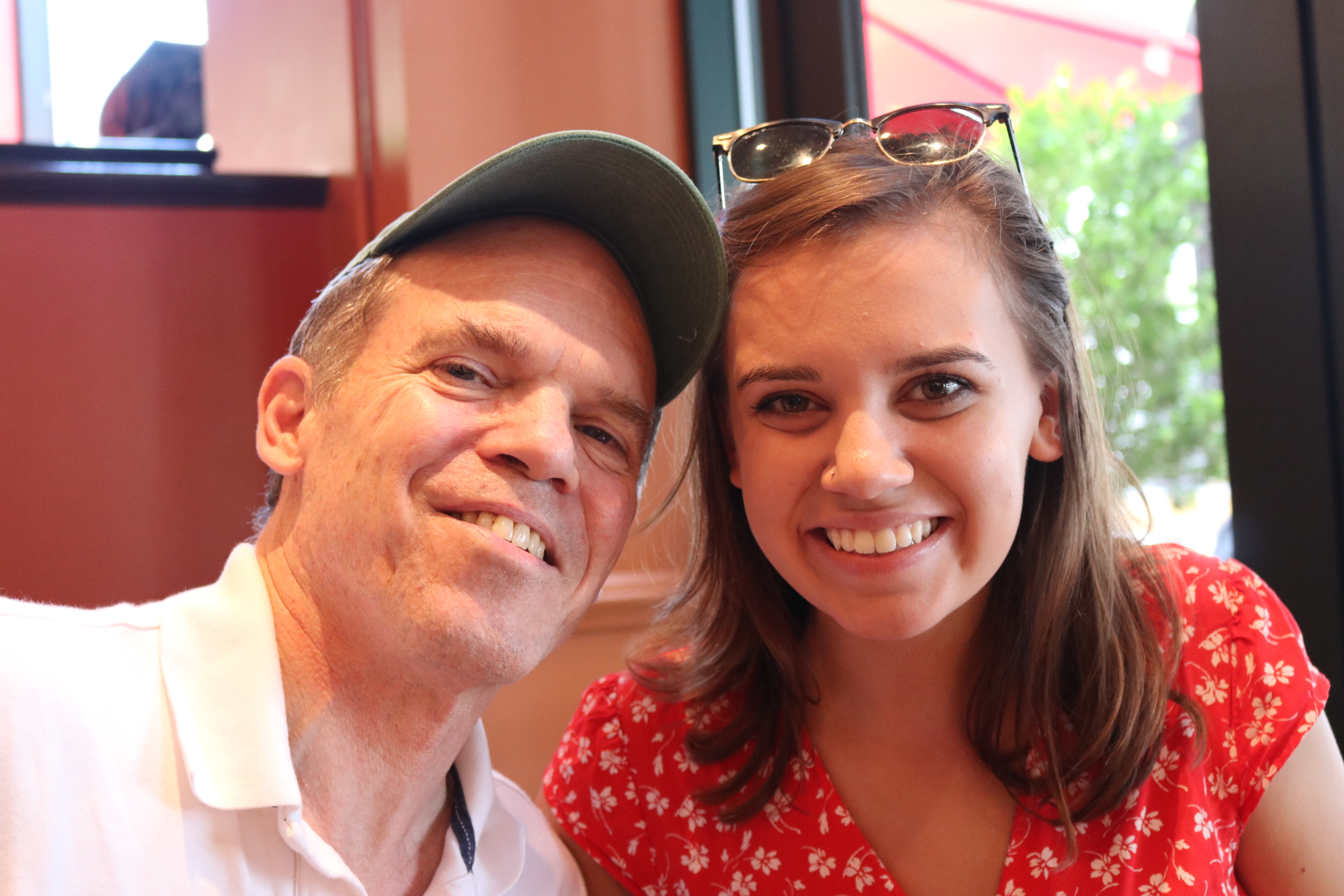Having students back at home sometimes offers a chance for courses to draw from the expertise of parents.
Elon University’s move to remote learning has brought parents closer to the classroom, as thousands of students tackled their coursework from the living rooms, dining rooms and bedrooms of their family homes.
It was that unexpected proximity this spring that brought one Elon parent not just closer to his daughter’s coursework, but into the course itself. Remote learning offered the opportunity for Jim Wilkes, principal for Cornerstone Academy in Chicago, to engage with his daughter, Emily Wilkes ’20, in her Designing Learning course taught by Associate Professor Mark Enfield.
It’s just one way Elon students, faculty and families are adapting during a time when lives and classroom lessons have been disrupted.
It started when Emily, sheltering at her Chicago home with her family, came downstairs to find her father reading one of the books for the course — “Pedagogy of the Oppressed” by Paulo Freire. Jim was familiar with the text as an educator and through his work at Cornerstone, a private Christian high school serving students from a diverse array of economic and social backgrounds how have struggled at other schools.
“Before I knew it, I was being involved with a little snippet of a conversation in her classroom,” Jim said.
The Designing Learning course attracts students from a broad range of majors beyond education who are seeking to learn more about teaching, according to Enfield. The core capstone course explores what it means to be educated and the philosophical and psychological aspects that go into learning, Enfield said. Wilkes is majoring in strategic communications and minoring in dance, and took the course to better equip her as she pursues the career goal of opening a dance studio to teach basic and beginner ballet.
When Emily shared with Enfield her father’s interest in the book and his professional background as a teacher and principal serving students facing a range of challenges, Enfield saw an opportunity to draw upon that experience and expertise.
“I thought it was interesting to think about how parents and other people at home can be engaged in the kind of learning that Elon students are pursuing remotely,” Enfield said. “It creates a new kind of engaged learning where a student is learning what they are learning in class with those who they know and love.”
“A lot of the things I’ve been doing for the past 25 years have now clicked for her. She can see the philosophy behind the school and the philosophy of why I took a job like this.”
— Jim Wilkes P’20
As the class prepared to discuss the article, “What Does It Mean to Be Well-Educated?” by Alfie Kohn, an author and lecturer, Enfield asked Emily to interview her father on a variety of topics related to the article and record the interview to be shared with the class. Her father was supposed to respond without reading the article to see how his perspectives might vary or align with those of Kohn’s. “He didn’t want me to do the homework, which was fine with me,” Jim Wilkes said.
Finding these more in-depth opportunities to discuss the subject with her father has been enriching, Emily said. Heading into the class at the start of spring semester on campus, she had known this was a course her father would be very interested in. “The course is all about designing a learning experience that is most beneficial for students,” Emily said. “I have always known what my dad does, but it has given me a new perspective on what he thinks about and what his objectives are for his students.”
Jim explains that the approach outlined in Pedagogy of the Oppressed is not unlike that at Cornerstone Academy, which serves students in Chicago who have often left public schools and “drifted away” from the educational system. “We try to bring them back to high school,” he explains. “It’s a safety net school.”
One of the requirements for graduation is to hold a job, typically at a food store or pharmacy, for three months before receiving their degree. “A lot of the things I’ve been doing for the past 25 years have now clicked for her,” Jim said. “She can see the philosophy behind the school and the philosophy of why I took a job like this.”
Enfield said it was valuable to be able to bring Jim’s experiences and expertise as an educator in the field into this course, and sharing that interview with the class helped identify at least one other opportunity for a student’s family member to engage with the class on a different topic.
“It has me thinking a lot about other ways I can engage students’ families now, and in the future,” Enfield said. “This is also helping students shift their focus to think about how they might have someone in their lives who is essentially an expert and could be another source of information.”



